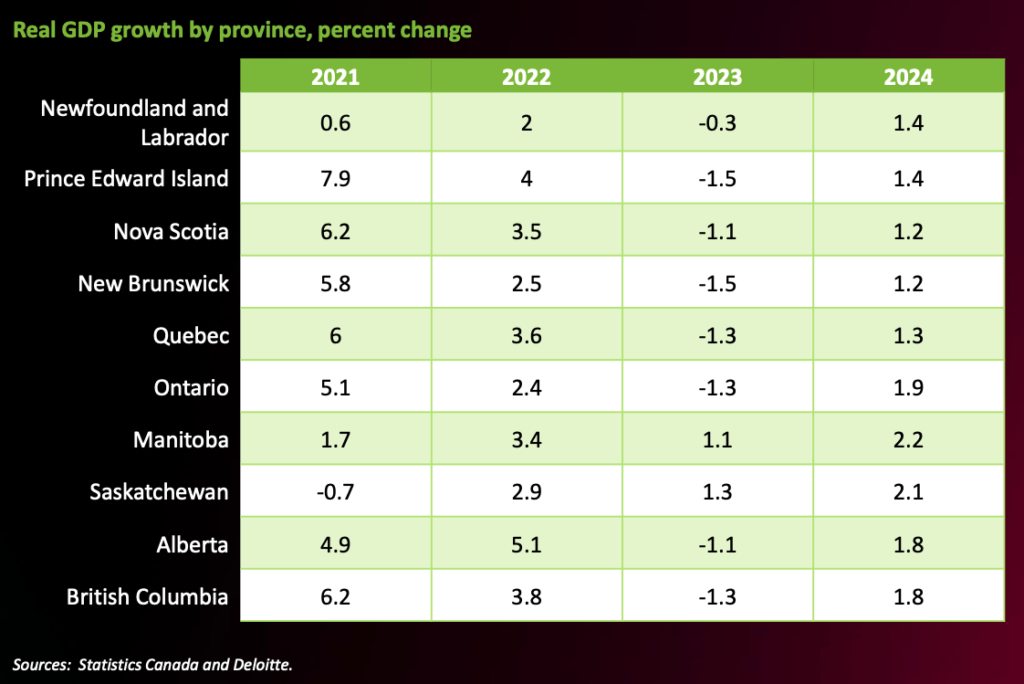It’s the economic event we’ve been dreading.
According to a report by Deloitte, Canada’s economy is set to cool down this year due to inflation and the public’s reluctance to spend.
“The Bank of Canada has hiked interest rates by more than we anticipated a few months ago, a trend that is chipping away at household purchasing power. Higher borrowing costs have created a headwind for businesses that want to invest, the report stated.
As a result of an expensive housing market and some of the highest debt burdens in the country, Deloitte says British Columbia and central Canada will be hardest hit by this recession.
“With interest payments rising, debt-servicing costs will have the biggest impact in these provinces, with most sectors of the economy being affected by the reduction in household purchasing power,” the report reads.
Going into 2021, the real GDP growth in BC was a strong 6.2%, within a year it slowed down considerably to 3.8% in 2022.
As we head into 2023, the province’s GDP is expected to drop yet again to -1.3% alongside Quebec and Ontario.

With a deep recession expected to hit Canadian wallets later this year, there are still a few positives to consider.
Related: 7 ways Victorians can cut costs and save money heading into the new year
“The good news is that we are increasingly confident that peak price growth is behind us, with inflation decelerating steadily since hitting 8.1% in June 2022. We expect to see price growth continue to slow, with moderation already evident in gasoline and food prices as well as homeowner replacement costs, in step with sliding housing prices,” the report stated.
For those worried about the reliability of their employment going into this recession, Deloitte reports that the result of a tight labour market should allow most Canadians to hold onto their jobs.
“Employers will likely be reluctant to let go of their workers for fear of not being able to fill those vacant positions once the economy begins to recover next year,” the report said.
As 2022 came to a close, the findings show employment growth in October and a decline in unemployment in November.
Looking to the future, by 2024 the BC economy should gradually recover to a forecasted 1.8%.
With many Canadians about to enter 2023 in a stalemate with a weak economy, the report predicts over the next 12 to 18 months monetary changes will be in full swing.
With the news of an impending recession, how are you coping with the impact of unrelenting inflation?



